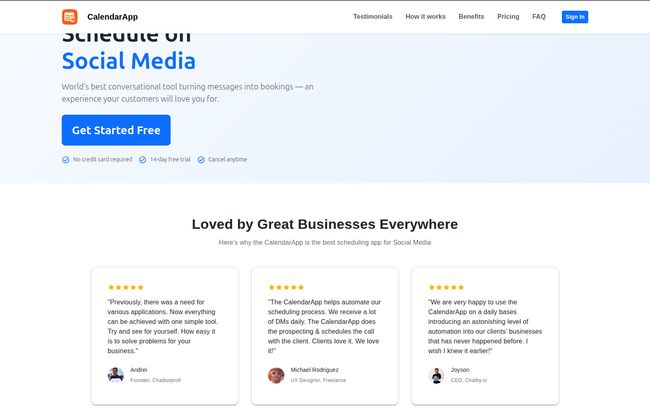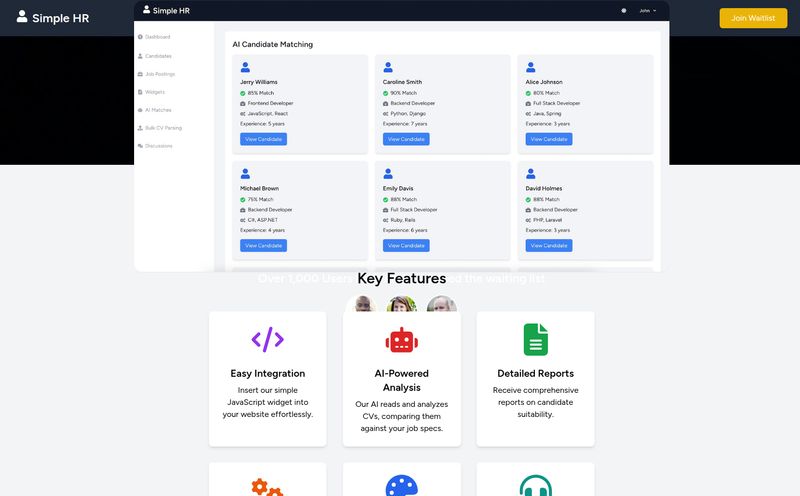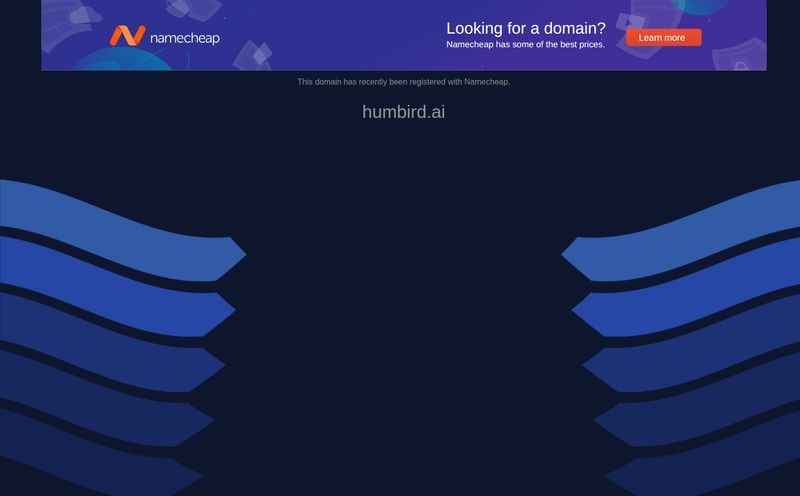Let’s have a little chat. You and me. As a business owner, a freelancer, or a service provider, how much of your day is spent inside your DMs? Be honest.
The endless DM dance. You know the one. It’s that frustrating, time-sucking back-and-forth where a potential customer asks if you’re free on Tuesday, you say yes, they ask what time, you give them options, and then… radio silence. Crickets. You’ve just wasted 15 minutes you’ll never get back, and you don’t even have a booking to show for it.
For years, we’ve been told to “engage with our audience” on social media, and that’s great advice. But it’s created this monster where our inboxes have become our unofficial, and deeply inefficient, reception desks. I've been in the marketing and traffic game for a long time, and I've seen countless tools that promise to automate your life. Most of them are just another thing to manage. But every now and then, something comes along that tackles a real, tangible problem. That's why I started looking into CalendarApp. It claims to turn those chaotic DMs into clean, simple bookings. But does it actually work? Let’s find out.
What Exactly is CalendarApp? (And Why Should You Care?)
At its core, CalendarApp is a conversational scheduling tool. Think of it less as a rigid booking form and more as a smart assistant that chats with your customers on their favorite platforms—we’re talking WhatsApp, Instagram, Facebook, and Telegram. When someone messages you asking for an appointment, the app jumps in and handles the entire conversation for you.

Visit CalendarApp
It checks your availability, offers time slots, and once the customer confirms, it automatically adds the appointment to your Google Calendar. Boom. Done. No more toggling between your DMs and your calendar, trying to figure out if 3 PM on Thursday works. It's like having a tiny, hyper-efficient receptionist living inside your phone, but without the need for a tiny desk or coffee breaks.
The magic here is that it meets customers where they already are. They don’t have to click a link, go to a new site, and learn a new interface. They just chat, like they were going to anyway. This is huge for reducing friction and capturing leads that might otherwise get lost in the shuffle.
The Features That Actually Matter
Any tool's website can throw a bunch of shiny features at you. But after playing around and looking at what CalendarApp offers, a few things really stand out as being genuinely useful for a busy professional.
Conversational AI: More Than Just a Dumb Bot
We’ve all had those painful experiences with terrible chatbots, right? The ones that get stuck in a loop if you type a word they don't recognize. It’s infuriating. CalendarApp aims for something better with its “Smart Conversations.” It uses AI to conduct a more natural, human-like dialogue. A customer can say something like, “Hey, can I book a table for 4 people at 7pm tonight?” and the tool understands the intent, checks for availability, and responds intelligently. You can also customize the text and buttons, so the bot's voice can match your brand’s—whether that's super professional or fun and casual.
The Magic of Automated Syncing
This is the big one for me. Any booking tool without calendar integration is basically useless. CalendarApp syncs directly with Google Calendar in real-time. This means if you manually block off time for a personal appointment, the app won't offer that slot to a customer. No more double-bookings. No more embarrassing phone calls to reschedule. It’s a simple concept, but having it automated across your social channels is a game-changer. They also mention that integrations with Outlook and Office 365 are “coming soon,” which is great news for anyone tied to the Microsoft ecosystem.
Killing No-Shows with Automated Reminders
A booking is only good if the person actually shows up. No-shows are the silent killer of revenue for service-based businesses. CalendarApp tackles this head-on with automated reminders sent via the same chat platform the booking was made on. This is so much more effective than an email that gets buried in an overflowing inbox. A simple WhatsApp ping an hour before an appointment can be the difference between a paid client and a wasted time slot. It’s a feature that directly impacts your bottom line.
Who is This Tool Actually For?
This isn't a one-size-fits-all solution. CalendarApp is clearly designed for businesses that rely on appointments and get a lot of inquiries through social media. Their own website highlights use cases for:
- Restaurants: Automating table reservations and even handling pre-payments for confirmed bookings. They feature a case study of an Italian restaurant that increased table bookings by 17% just by reducing response time. That's a solid number.
- Hair & Nail Salons: Managing stylist schedules and sending appointment reminders to reduce no-shows.
- Gyms & Studios: Allowing members to book classes or personal training sessions through a quick chat.
- Real Estate: Scheduling property viewings without the endless phone tag.
- Sales Teams: Letting prospects book a demo or a call directly from a social media conversation.
If your business model fits any of these descriptions, you're probably nodding your head right now.
Let's Talk Money: The CalendarApp Pricing Breakdown
Alright, let’s get to the part everyone wants to know about. Is it affordable? The pricing structure is pretty straightforward, which I appreciate. No hidden fees or confusing credit systems. Here's a quick look:
| Plan | Price | Key Features |
|---|---|---|
| Free Trial | $0 for 14 days | 1 Google Account, 10 Calendars & Event Types, full support. No credit card needed. |
| Professional | $29 /month | Billed per Google Account, unlimited events, 1000 messages/month, priority support. |
| Lifetime Deal | $2,999 one-time | Unlimited Google Accounts, 10,000 messages included, all future updates. |
The 14-day free trial is a no-brainer. It’s generous and lets you test everything without commitment.
The Professional plan at $29/month is interesting. The key thing to notice is that it's priced per Google Account. If you’re a solopreneur, it’s a reasonable monthly fee. If you're a salon with five stylists who each need their own calendar synced, that cost multiplies. The 1,000 messages per month limit is also something to watch; high-volume businesses might need to buy more.
And then there’s the Lifetime Deal (LTD). Honestly, that $2,999 price tag is a bit of a shocker. It's a serious chunk of change. This is clearly aimed at agencies managing multiple clients or very high-volume businesses who can justify the upfront cost for a long-term saving. It's an expesnive proposition for the little guys, for sure.
The Good, The Bad, and The... Pricey
The Good Stuff (What I Love)
The core value proposition is just so strong. It takes a major, universal pain point for small businesses and solves it elegantly. The social media integration is spot-on, and focusing on conversational booking feels like the future. The fact that it reduces no-shows and saves hours of admin work means it can pay for itself very quickly. I also love the generous, no-strings-attached free trial.
The Not-So-Good Stuff (My Concerns)
The limitations on the lower-tier plans are my main hang-up. The message caps and the “per Google Account” pricing on the Professional plan could be a hurdle for small but growing teams. And while LTDs can be amazing value, the price here puts it out of reach for many of the businesses that could benefit most from the automation. It feels like a bit of a missed opportunity to not have a more accessible mid-tier plan for, say, a team of 3-5 people.
My Final Verdict: Is CalendarApp a Buy?
So, should you pull the trigger? In my opinion, it comes down to a simple calculation: how much is your time worth?
If you're a solopreneur or a small business owner spending more than a couple of hours a month manually scheduling through DMs, the $29/month Professional plan is almost certainly worth it. Think about it. If you value your time at even a modest $30/hour, the tool pays for itself by saving you just one hour of admin work. Everything after that is pure profit and reclaimed sanity.
For agencies or larger businesses, that $2999 LTD is a tougher pill to swallow, but the math might still work out if you’re managing numerous accounts. For most people reading this, though, my advice is simple: stop letting your DMs run your life. Sign up for the 14-day free trial. It costs you nothing. Connect your social accounts, sync your calendar, and see how it feels to have bookings happen on autopilot. You might just wonder how you ever managed without it.
Frequently Asked Questions about CalendarApp
- Can I try CalendarApp for free?
- Yes! They offer a 14-day free trial that gives you access to the main features. The best part is you don't need a credit card to sign up, so it automatically ends without any surprise charges.
- What social media channels does it work with?
- Currently, CalendarApp integrates with the big ones for direct messaging: WhatsApp, Instagram, Facebook, and Telegram. You can also use it on your website.
- Does it sync with my calendar?
- It offers real-time, two-way syncing with Google Calendar. According to their site, support for Outlook and Office 365 is on the way.
- Is the pricing per user or per business?
- This is a key detail. The Professional plan is priced at $29/month for each Google Account you connect. So if you have three staff members who each need their own calendar synced, it would be three times that cost.
- Can I customize the chat messages?
- Absolutely. You can customize the text and buttons within the conversational flow to make sure the AI's tone and language match your brand perfectly.
- Is there any support if I get stuck?
- Yes, they offer support via text, call, and video call on all plans, with the paid plans getting priority support. This is a nice touch, especially for a tool that's so critical to a business's daily operations.



